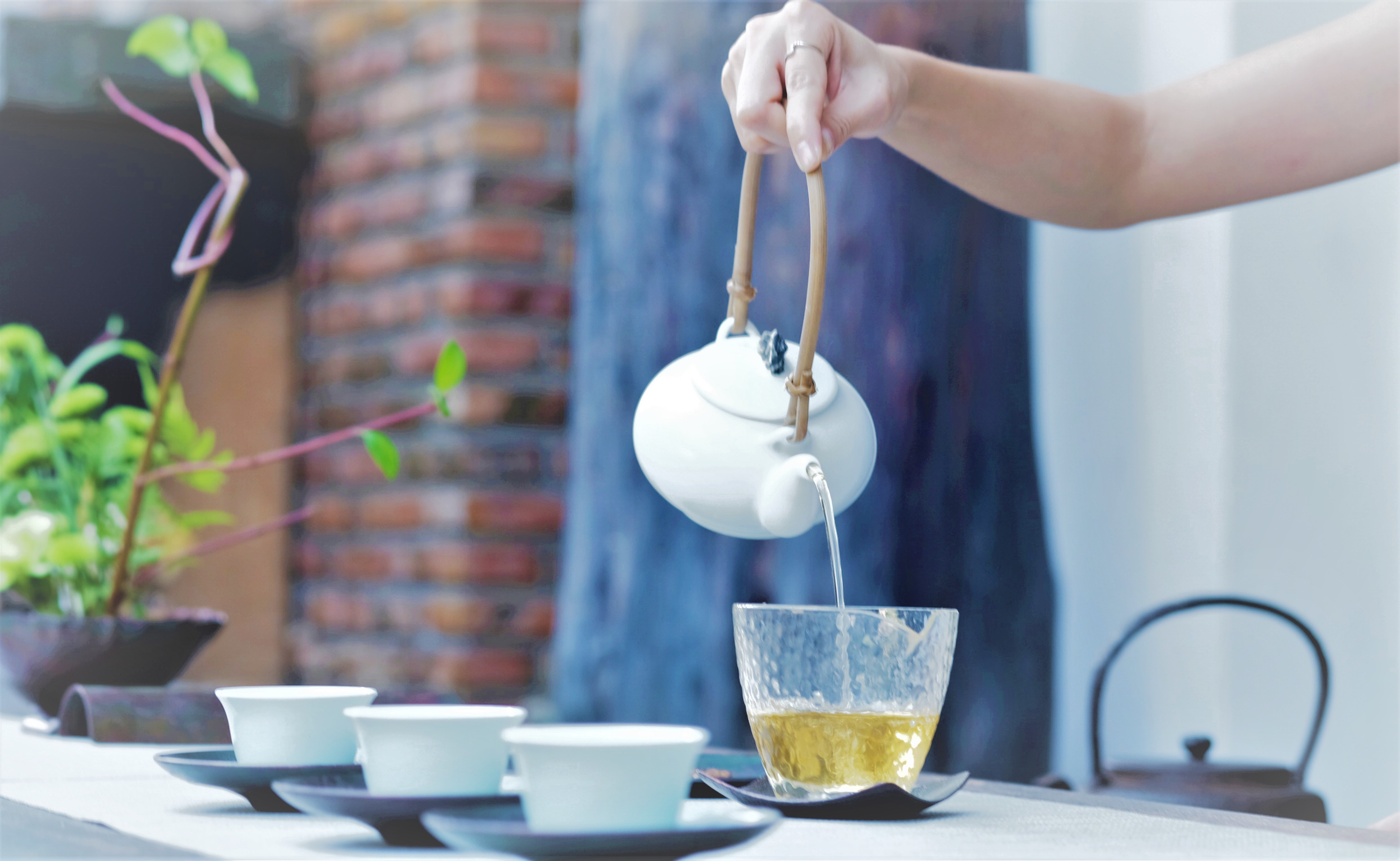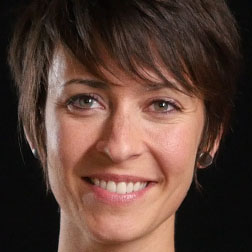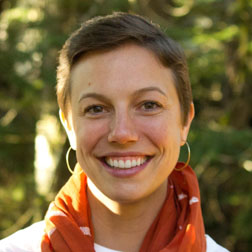Most of us know how to host others. At gatherings we offer to take coats, pour a drink or two, check in now and then to make sure our guests are comfortable, and then wish everyone well as they head home. We know the feeling of being hosted well, and the immense comfort this focused attention of being cared for can bring, especially during challenging life experiences. Sometimes, being hosted well can even be the catalyst for shifting our perception of what is possible.
What does it mean to translate this loving caring of others into an experience of hosting one’s own self? And how does our ability to consciously self-host through the challenging moments of our own growth lead to an increased sense of resilience and self-mastery, even when we are sitting in the fire of deep change? And how might this ability contribute to our participation in more awake, generous and life-giving relationships, work, and overall quality of being alive?
We practice self-hosting when we intentionally connect with the spacious, mature, and growth-oriented aspect of our being. Self-hosting asks us to go deeper into our emotional red zones, or the places that fill us with rage, fear, or shame. We host ourselves when we are willing to lean into these challenging emotions while establishing the boundaries we need to take care of ourselves in the process. When we do this with equal parts vigor and gentleness, we start to notice our conscious connection to ‘big host’ (an aspect of big mind/big heart), and are able to tap into this immense spaciousness as a way to host not just ourselves, but the growth of our relationships, community, and planet.
***
Through our co-writing of this piece, we each felt led to share a unique experience of self-hosting in our lives.
From Gracy:
When I was in my 20’s I completed serving in the Peace Corps in Peru. Upon arriving back to the United States, I found everything had changed in my former life. My mom had sold my childhood home and moved to China. All of my belongings had been moved into the spare room at my father’s house, with whom I had a strained relationship. I was in culture-shock, missing the Andean people and culture that had hosted me for more than two years, but also needed to figure out what I was going to do with the rest of my life. During this initial readjustment, I desperately needed the care of being hosted, but found that no one was around to tend to my needs.
After a few weeks of feeling sorry for myself, I started to explore ways to host myself in my current situation. My dad and his wife had a large cookbook collection and one day I flipped through one about baking. I got excited about the idea of making bread and was delighted that by the end of the afternoon the flour, yeast and water I kneaded together had become a delicious loaf of bread. I began baking every day, often taking my father’s dogs for long walks around a nearby lake while the bread rose. Baking and walking gave me space to contemplate how shaky I was feeling inside. Becoming aware of my shakiness caused me to to seek therapy and upon my therapist’s suggestion, sit a 10-day silent meditation retreat.
During this difficult life transition, my decision to start hosting myself – even through the simple act of baking a loaf of bread – set in motion a series of important awarenesses and skillful decisions that helped me recognize my feelings, seek the support I needed, and allow myself to shift gracefully into the next phase of life. At the time, I wanted someone to do this work for me – to host me as I had been hosted in Peru – but looking back, this period of self-hosting is what helped me become the resilient and capable woman I am today.
***
We believe that, each of us has the power to self-host, no matter the circumstance. We can use our conscious attention to our own needs to uplift ourselves within destructive moments, or even change dysfunctional systems. Hosting ourselves well leverages our ability to cultivate our loving presence, and is central to our work with authentic self-care, skillful engagement in conflict, and other forms of visionary leadership. Our ability to self-host is not something we are necessarily born with, but grows from our commitment to personal development. Like anything, we must intentionally cultivate this power through practice.
Our evolving nature asks us to show up fully in our relationships and welcome, in all their intensity, sweet newness, conflicts, heart longings, confusion and disturbance. In the search for elegance in our behavior, we might hurt others as we grow and learn. During these moments, we host ourselves by reaching inside, stretching wide and becoming big enough to hold our own evolution. The question that self-hosting continues to ask us is: Can we love big enough to assume the best, of ourselves and the other, and powerfully act from here?
****
From Nina:
A few years into our marriage, my partner and I found ourselves being increasingly irritated and in conflicts about differences we previously felt were part of a quite delicious “salt ‘n pepper” spectrum in our relationship. After the sweet years of both early relationship and parenting, we moved through two particularly intense periods, that could have just as well led to the ending of our relationship, when we started to taste some of what I now relate to as the power of self hosting:
Despite intense conflict, both in us and between, and utter not-knowing of our future, we were able to stay and be with what was happening, to care for ourselves in ways that kept our cups full enough, to get the support we needed, and to, maybe most importantly, “stay in love with ourselves”. In the space between us, we then seemed to have more access to spaciousness and curiosity when our minds got fixated on anger or righteousness. We seemed to be more able to take each others perspectives and keep moving in conflict, holding both our own and the other person’s truth. And we then also seemed to get to some of the real issues underneath what we were dealing with. The inner “atmosphere”, the presence self-hosting created in each of us had an immense impact on the quality of our relational space.
During this period, I also got introduced to Robert Kegan’s work on adult development and became fascinated by the path of maturing overall. While I was, for as long as I can remember, passionate about people, and the subtleties in the space between us, I actually believe the intensity during this time of my life and the language Kegans work had for it inspired my career towards working with relationships, conflict and leadership.
***
The psychiatrist and Auschwitz survivor Viktor Frankl once said: “Between stimulus and response, there is a space. In that space is our power to choose our response. Within our response lies our growth and freedom.” Frankl seems to speak to that place within and beyond us that is able to host ourselves and our relationships while they are coming undone and when the time is right, reforming in stronger, more powerful ways.
In the open space of hosting ourselves and others in conflict, life can often feel wild. And yet, even as we gain skill in this wild space and deepen our understanding of what it means to be consciously-evolving humans, it can still feel challenging to translate this practice into our lives.
To help with this translation, we used the Integral Quadrants to give practical applications for fully-formed self-hosting practice.
Four Quadrant Applications of Self-Hosting:
- I – Interior: practicing loving-kindness meditation, creating space to be “the witness” when triggered, leaning into conflict (as opposed to avoiding it), engaging with the challenging aspects of ourselves, and committing to an ongoing practice of self-development.
- I – Exterior:: honing your ability to recognise and vocalise your boundaries, practicing embodied listening, mindfully applying your conflict style in relationships, and cultivating a small-changes-mindset as opposed to perfectionism
- We – Interior: creating a culture where conflict is explored and valued, encouraging others personal development and honoring their boundaries, and valuing emergence and open tolerance of discomfort within the unknown.
- We – Exterior: cultivating a culture of self-care within your organization or community, including unlimited time-off for self-care with encouragement to use it, built-in structured time to give and receive feedback, modelling vulnerable and real leadership, and attention to mindful experience and space design.
***
With the power of self-hosting, we can become instruments of the life we long for, a wild life that doesn’t miss the spice of conflict and friction (this is where the tone emerges in a violin), but rather, emerges from a bigger space of being that includes and creates from all the contrast. This conscious, ongoing growth shows the alchemical power of hosting ourselves well while caring for others. By holding space for a co-creative, conscious evolution, we can show up for ourselves while enriching our relationships and communities. Self-hosting allows us to serve ourselves and others from the never-ending well of compassion and spaciousness that exists within all of life.
Through collaborating on this piece, we had the opportunity to deepen our self-hosting practices. By stepping into the unknown of co-creative writing, tracking our reactions through the process, and giving each other authentic feedback, we both felt our personal creative and relational capacities were expanded. We had transformed and evolved as a result of hosting ourselves and each other. On one level, it was simple: we were just paying attention to what was happening as we wrote. On another level, we understood the importance of the courage and self-awareness that brought us to the point of growth.
We invite you to bring a lens of self-hosting to your life, your work, and your relationships. How does consciously hosting yourself through the ups and downs of life help you to evolve into more of yourself? How can committing to a practice of self-hosting not only serve you, but also your relationships and the world around you?
Gracy Obuchowicz is a Washington, DC-based self-care coach, group facilitator, retreat leader. She believes practicing authentic self-care is the most revolutionary way to serve others and create positive change in society. Learn more about her work at www.selfcarewithgracy.com and preorder her upcoming book, “Selfcarefully.”
Nina Nisar is a conflict and relationship coach and group facilitator based in Frankfurt/M. Germany. She works with individuals and teams who are ready to be transformed by the challenges they are facing in how they lead, collaborate and live relationships. Her work offers guidance in the subtleties of human interactions, expands perspectives and offers a path towards more sovereignty and mature interactions.



